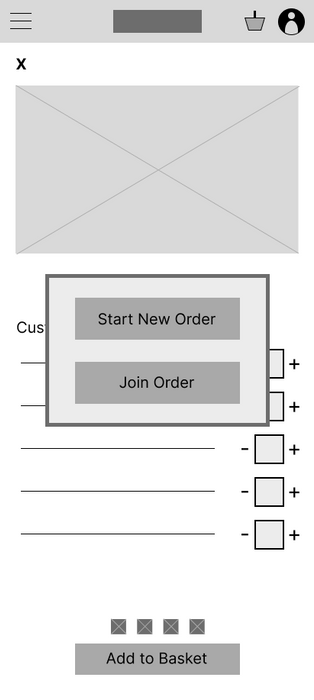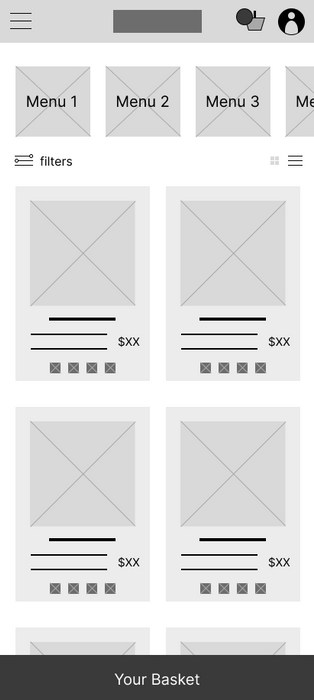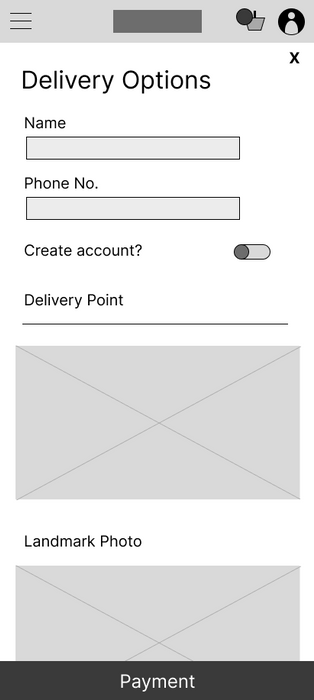Where Beach Day Meets Better Dining
Snack Shack
Picture this: The perfect beach day. Waves crashing, sun shining, and then... hunger strikes. Suddenly you're faced with a familiar dilemma – abandon your perfect spot, trudge through hot sand, and wait in an endless line, or stay hungry. This universal beach experience sparked the idea for Shack, transforming the age-old beach food run from a sun-baked hassle into a seamless part of your perfect day by the water.
Photo-Enhanced Location Delivery
Simple Group Order Management
Beach-Optimized Interface
Real-Time Order Tracking
Understanding the Problem
The beach food dilemma represents a curious gap in our digital-first world. While food delivery has revolutionized how we eat everywhere else (with a staggering 204% market growth in five years), beach dining remains stubbornly stuck in the past. Our research revealed that 65-70% of beachgoers actively stress about leaving their spots for food – a testament to how this seemingly simple problem can cast a shadow over an otherwise perfect beach day.
The challenge isn't just about convenience – it's about preserving those precious moments of beach time that we all cherish. Whether you're a parent trying to keep your kids from melting down (literally and figuratively), a group coordinator juggling everyone's orders, or simply someone who'd rather not lose their prime spot, the traditional beach food run disrupts the very relaxation we go to the beach to find.
User Research Methodology
To understand the fundamental gaps in beach food ordering solutions, Shack's discovery phase deployed a comprehensive research strategy focusing on both current behaviors and unmet needs. The research combined interviews with carefully selected participants representing key user personas alongside extensive beachside observations to validate insights. This was complemented by consultations with beach vendors and delivery service providers to validate technical feasibility and understand operational constraints.
The methodology deliberately began with open-ended questions about beach dining habits before introducing any concepts, allowing for unbiased insights into current behaviors. Each in-depth interview followed a structured progression from current behaviors through pain points to technology usage, with particular attention to moments where existing solutions fell short.

Mapping natural beach food ordering patterns
Physical versus digital ordering effectiveness
Group dynamics and coordination strategies
Location & timing affecting food delivery
The Research Approach Prioritized Four Key Areas
Key Research Findings
User Behavior Patterns
-
Existing delivery platforms proved inadequate for beach-specific challenges
-
Groups developed elaborate workarounds for order coordination
-
Location communication emerged as a universal challenge
-
Visual information proved critical for decision-making in the beach environment
User Pain Points
-
Spot abandonment anxiety affected 30-35% of beachgoers
-
Location description complexity impeded delivery accuracy
-
Group payment coordination created social friction
-
Environmental conditions compromised digital interface usability
Market Context
-
Food delivery services show a sustained growth trajectory
-
Location-specific solutions demonstrate strong market demand
-
Beach venues represent an underserved market segment
-
Digital payment preferences continue to strengthen
Primary Persona & User Journey





Implementing the Solution
Shack emerged from a fundamental insight: the failure of conventional food delivery platforms in beach environments stems not from technological limitations but from a lack of context-specific design. Our research with users like Lauren and Maria revealed that successful beach dining requires more than mere delivery capability—it demands an understanding of the beach ecosystem itself.
Design Decisions
Based on research insights, the team developed a system of interconnected tags with specific features:
Location Services
Map-based location pinning
Photo landmark uploads
Clear delivery instructions
Saved delivery locations
Order Management
Group order coordination
Individual item customization
Multiple payment options
Order status tracking
User Interface
Clean, readable interface
Clear menu categorization
Quick reorder functionality
Favorite item saving
User Flow

-
Guest Flow & Account Creation
-
Quick start order entry
-
Optional account creation
-
Basic profile setup
-
Location permissions
-
-
Main Interface Structure
-
Menu categories (Snacks, Mains, Drinks)
-
Featured items section ("What's Hot")
-
Deals and promotions
-
Order status tracking
-
-
Order System
-
Individual/group order toggle
-
Item customization options
-
Delivery location setup
-
Payment method selection
-
-
Navigation Structure
-
Main menu access
-
Order basket
-
Account management
-
Delivery tracking
-
UI Wireframes
Initial User Testing
Location description challenges - users need easy ways to mark their beach spot for delivery
Visual location sharing with photo landmarks and map pinning
Group ordering complexity - users want to coordinate orders without leaving their spot
Streamlined group ordering with individual customization options
Menu visibility issues - users struggle with menu readability in bright sunlight
High-contrast interface with clear categorization
Payment friction - users want flexible payment options for different situations
Multiple payment methods with easy account management
Feedback highlighted several critical insights & led to those defining core features of the system and app
Physical Integration
-
Clear category navigation
-
Visual-first item display
-
Simple customization options
-
Order tracking system
Delivery Features
-
Interactive location selection
-
Photo landmark support
-
Pick-up & delivery options
-
Real-time status updates
User Interface
-
Sunlight-optimized design
-
Streamlined navigation
-
Quick actions menu
-
Favorites system
Experience the App
The prototype here is a dynamic interactable element that let's you get first hand experience of the UI of the app
-
Menu Exploration (3 min)
-
Browse categorized menu items (Snacks, Mains, Drinks)
-
View featured items in "What's Hot"
-
Check special deals and combos
-
Save favorite items for quick reordering
-
-
Ordering Experience (2 min)
-
Select and customize items
-
Add to cart and complete a purchase
-
Add details for delivery (location, photo, etc)
-
Track order status in real-time / order confirmation
-
-
Account Setup (2 min)
-
Create your profile and preferences
-
Explore your profile page
-
My Contributions
As the sole designer and strategist for Shack, I led the project from initial concept through final implementation, transforming beach dining pain points into an intuitive digital solution. The role demanded a holistic approach to product development, balancing user needs with technical feasibility while maintaining focus on core functionalities that would make the biggest impact.
Turning Research into Utility
Through extensive user interviews and observations, we discovered that existing food delivery apps fail at beaches not due to technical limitations, but because they don't account for the unique aspects of beach dining. This insight led us to focus on location sharing through photos and maps, making delivery point communication intuitive rather than frustrating.
Balancing Features with Functionality
While our initial vision included numerous features, success came from focusing on core functionalities that made the biggest impact. By prioritizing clear menu presentation, simple ordering flows, and precise location sharing, we created a focused solution that works reliably in beach environments.
Building for the Environment
The beach setting presented unique constraints that shaped our design decisions. Bright sunlight influenced our interface choices, leading to high-contrast designs and larger touch targets. These constraints didn't limit us—they guided us toward a more focused and effective solution.
Understanding Social Dynamics
Our research revealed that beach dining is inherently social, with groups often coordinating orders together. This insight led us to develop streamlined group ordering features that maintain simplicity while accommodating the natural way people eat at the beach.
Lessons & Insights
Shack began as an effort to solve the universal challenge of beach dining and evolved into a study of how environment-specific design can enhance everyday experiences. Leading this project from initial research through implementation revealed valuable insights about creating solutions that work in unique contexts.













